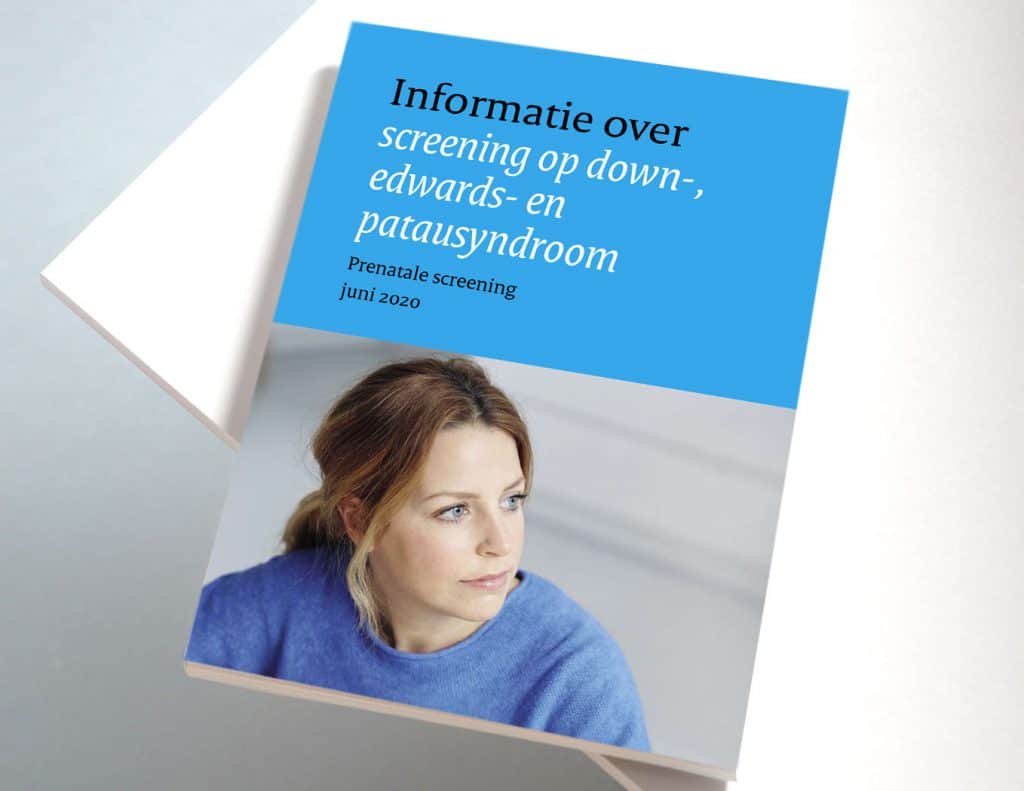In the Netherlands all pregnant women are offered the choice of prenatal screening. You will be offered more information on the subject at your initial consultation.
What is prenatal screening?
‘Prenatal’ means ‘before the birth’. A screening is an examination by means of a test. During prenatal screening it is examined if the baby has an increased risk of a birth defect.
Counselling
Counselling is an extensive exchange of information with your midwife during which all possible options of prenatal screening are discussed. Included in the discussion are the benefits and disadvantages of these tests. This discussion will always take place prior to making a final decision about whether to go ahead or not with the tests.
NIPT
As a pregnant woman in the Netherlands you have the option of having your baby tested (screening) for the likelihood of Down-, Edwards- of Patau’s syndrome. This screening is done via the NIPT method. This test is performed between 10-14 weeks of pregnancy. We will share more information about this during your appointments with us.
With the NIPT, blood is taken from a pregnant woman and is examined in a laboratory. In addition to her own DNA, the DNA of the placenta is also present in the mother’s blood. The DNA of the placenta is almost always the same as that of the baby. With the NIPT this DNA can be used to detect trisomy 21 (Down syndrome), trisomy 18 (Edwards syndrome) and trisomy 13 (Patau syndrome).
The reliability of the NIPT test is very high. If the results of a NIPT test states there is no presence of trisomy 21, 18 or 13 then the chance that results are wrong is lower than 1:1000. If results do state the presence of a trisomy there is a chance that the baby does not have trisomy after all. To be certain, a CVS (Chorionic Villus Sampling) test or amniotic fluid test (amniocentesis) is suggested.
- The NIPT can be performed from 10 weeks of pregnancy.
- The NIPT is covered by your basic health insurance.
- The results take 10 working days
- The NIPT does NOT determine the sex of the baby
If you would like more information and help with choosing prenatal screening, please see www.onderzoekvanmijnongeborenkind.nl and click on brochure below.

The 13-week scan
At this scan a sonographer will use an ultrasound machine to examine the baby for any physical abnormalities.
The sonographer will also check the amniotic fluid and the growth of the baby. The sonographer is required to inform you of all the findings. This means that you cannot have a partial scan. There is no risk to either the mother or the baby from a screening test.
You can have the 13-week ultrasound scan from 12+3 up to 14+3 weeks of pregnancy. This means from twelve weeks and three days up to and including fourteen weeks and three days.
The Structural Echoscopic Examination (SEO)/ the 20 week ultrasound scan
This is a detailed ultrasound scan where several structures of your unborn child are examined. The examination looks at amongst others the brain, the spine, kidneys and the heart. During the consultation we will provide more information about the 20 week ultrasound scan. You can also browse through the brochure below.
The 20 week ultrasound scan is covered by your basic health insurance and will be reimbursed by your health insurance provider.
Prenatal Diagnostics
You are eligible for prenatal diagnostic if certain birth or genetic defects run in your family. Prenatal diagnostic usually means performing an amniotic fluid test (amniocentesis) or CVS (Chorionic Villus Sampling).
If applicable and if you wish, we can provide more information about these tests at your initial consultation.